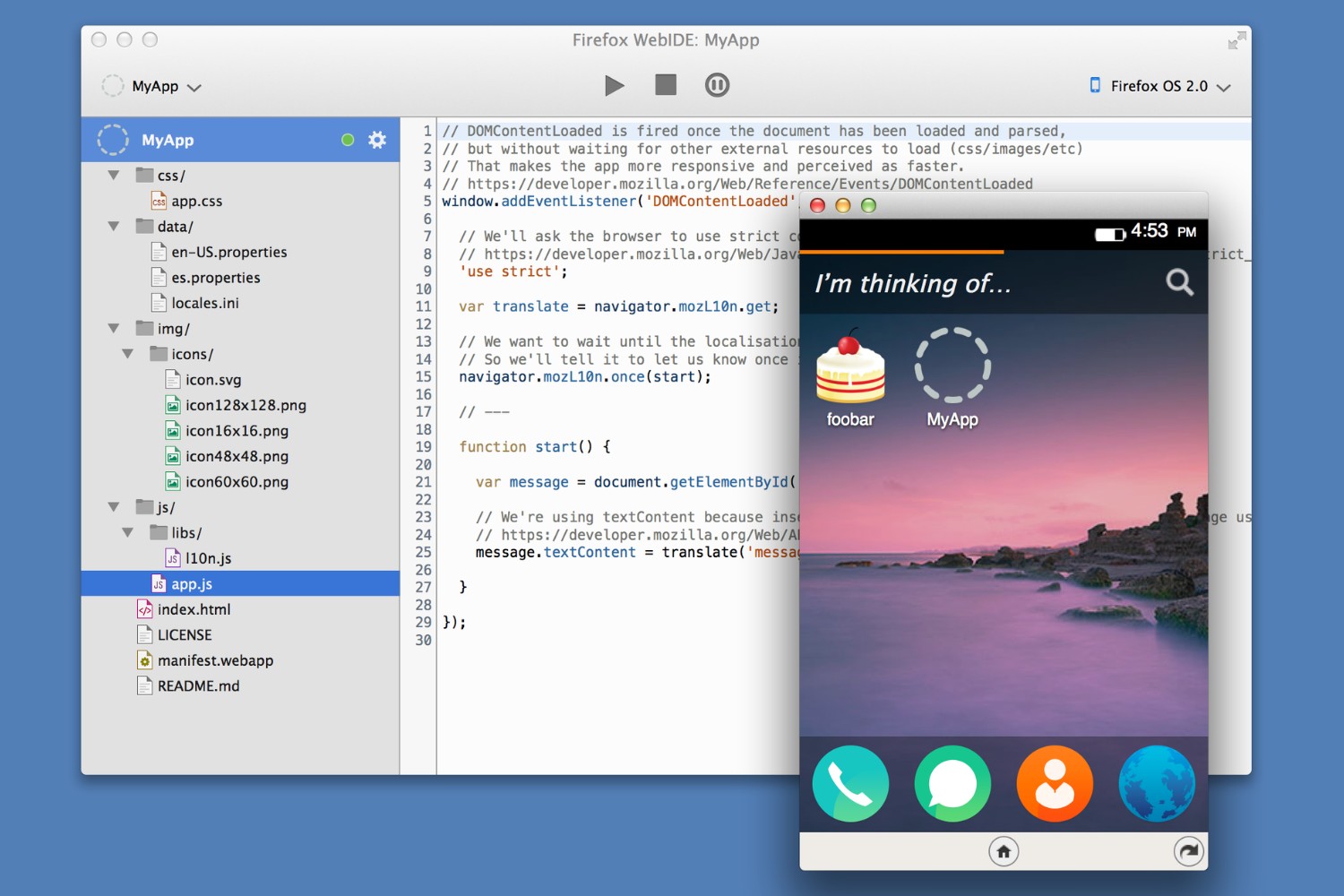Introduction
When browsing the web, encountering script errors can be a frustrating experience. These errors can disrupt the functionality of websites, causing pages to load improperly or not at all. If you're a Firefox user, you may have come across script errors and wondered how to address them effectively. Fortunately, understanding the nature of script errors and learning how to troubleshoot them can significantly improve your browsing experience.
Script errors in Firefox can manifest in various forms, such as unresponsive scripts, error messages, or unexpected behavior on web pages. These errors are often caused by issues within the website's code, browser settings, or conflicting browser extensions. While they can be bothersome, it's important to recognize that script errors are not uncommon and can usually be resolved with the right approach.
In this comprehensive guide, we will delve into the intricacies of script errors in Firefox, explore their common causes, and provide practical solutions to help you address and mitigate these issues effectively. By the end of this article, you'll be equipped with the knowledge and tools to tackle script errors with confidence, ensuring a smoother and more enjoyable browsing experience in Firefox.
Understanding Script Errors
Script errors, also known as JavaScript errors, occur when there are issues with the code on a web page. JavaScript is a programming language commonly used to create interactive and dynamic features on websites, such as forms, animations, and interactive maps. When a script error occurs, it indicates that there is a problem with the JavaScript code running on the web page, leading to unexpected behavior or functionality issues.
These errors can manifest in various ways, including error messages, unresponsive scripts, or pages not loading correctly. Understanding the nature of script errors is crucial for effectively addressing and resolving them. By gaining insight into the common causes of these errors, users can navigate the troubleshooting process more efficiently.
Script errors can stem from a range of factors, such as coding errors on the website, browser settings, or conflicts with browser extensions. They may also be triggered by outdated browser versions or compatibility issues with certain web elements. Additionally, network connectivity issues or temporary server problems can contribute to the occurrence of script errors.
It's important to note that script errors are not indicative of a flaw in the browser itself; rather, they typically originate from issues within the website's code or the user's browsing environment. By recognizing this distinction, users can approach script errors with a clearer understanding, focusing on targeted solutions to address the underlying causes.
In the context of Firefox, script errors may be accompanied by specific error messages or notifications, providing insights into the nature of the issue. These messages can offer valuable clues to help identify the root cause of the error, guiding users toward effective troubleshooting strategies.
By comprehending the nature of script errors and their potential triggers, users can adopt a proactive approach to mitigate these issues. With a solid understanding of script errors, individuals can navigate the troubleshooting process with confidence, empowering them to resolve these issues and enjoy a smoother browsing experience in Firefox.
Common Causes of Script Errors in Firefox
Script errors in Firefox can stem from various underlying causes, each contributing to the disruption of normal web page functionality. Understanding these common triggers is essential for effectively addressing and resolving script errors. Here are the key factors that can lead to script errors in Firefox:
-
Website Coding Errors: Script errors often originate from coding issues within the website itself. This can include syntax errors, improper implementation of JavaScript functions, or conflicts between different scripts running on the page. When the website's code contains errors or inconsistencies, it can lead to script errors in Firefox, impacting the user experience.
-
Browser Settings and Configuration: In some cases, script errors may be influenced by specific browser settings or configurations. For instance, security settings that restrict JavaScript execution or block certain scripts can trigger errors when attempting to load affected web pages. Additionally, outdated browser settings or misconfigured preferences may contribute to script errors, necessitating adjustments to restore normal functionality.
-
Browser Extensions and Add-Ons: The presence of incompatible or malfunctioning browser extensions can significantly impact the performance of web pages, potentially leading to script errors. Extensions that manipulate JavaScript behavior, such as ad blockers or script managers, may inadvertently interfere with the execution of scripts on certain websites, resulting in errors and unexpected behavior.
-
Outdated Browser Versions: Using an outdated version of Firefox can also be a contributing factor to script errors. Newer web technologies and JavaScript functionalities may not be fully supported by older browser versions, leading to compatibility issues and script errors when attempting to access modern websites or web applications.
-
Network Connectivity and Server Issues: Script errors can also be influenced by external factors, such as network connectivity problems or temporary server issues. When a web page's scripts fail to load due to network disruptions or server downtime, it can result in script errors within Firefox, impacting the page's functionality and user experience.
By recognizing these common causes of script errors in Firefox, users can approach troubleshooting with a targeted and informed mindset. Addressing these underlying factors through proactive measures, such as updating browser settings, managing extensions, and ensuring network stability, can significantly reduce the occurrence of script errors, fostering a more seamless browsing experience in Firefox.
How to Fix Script Errors in Firefox
Addressing script errors in Firefox involves a systematic approach to troubleshooting and implementing targeted solutions to mitigate the underlying causes. By following these practical steps, users can effectively resolve script errors and enhance their browsing experience:
-
Update Firefox: Begin by ensuring that you are using the latest version of Firefox. Updating the browser can address compatibility issues and ensure that the latest JavaScript functionalities are supported, reducing the likelihood of encountering script errors.
-
Check Network Connectivity: Verify your network connection to rule out any potential disruptions that may be impacting the loading of scripts on web pages. Stable network connectivity is essential for seamless script execution, minimizing the occurrence of errors.
-
Review Browser Settings: Examine your browser settings, particularly those related to JavaScript execution and script permissions. Adjusting these settings to allow JavaScript and enable necessary scripts can alleviate script errors on affected web pages.
-
Manage Browser Extensions: Evaluate your installed browser extensions and add-ons, particularly those that interact with JavaScript and website functionality. Disable or remove any extensions known to cause conflicts or interfere with script execution, as they may be contributing to the occurrence of script errors.
-
Clear Browser Cache and Cookies: Clearing the browser cache and cookies can resolve temporary data conflicts that may be impacting script execution. This can be done through the browser's settings or preferences, ensuring a clean slate for script loading on subsequent visits to web pages.
-
Inspect Error Console: Utilize Firefox's built-in Error Console to identify specific script errors and related messages. This tool provides valuable insights into the nature of script issues, aiding in the diagnosis and resolution of underlying coding errors or script conflicts.
-
Disable Hardware Acceleration: In some cases, hardware acceleration settings within Firefox can contribute to script errors. Disabling hardware acceleration through the browser's settings can alleviate compatibility issues and improve script execution on web pages.
-
Seek Alternative Web Pages: If a specific web page consistently triggers script errors, consider accessing alternative sources for the same content. This can provide a temporary workaround while the underlying script issues on the original page are addressed by the website's administrators.
By implementing these proactive measures and targeted solutions, users can effectively address script errors in Firefox, fostering a smoother and more reliable browsing experience. It's important to approach script error resolution with patience and persistence, as identifying and mitigating underlying causes may require a combination of troubleshooting steps. With a proactive mindset and the right tools at hand, users can navigate script error resolution with confidence, ensuring an optimized browsing experience in Firefox.
Conclusion
In conclusion, addressing script errors in Firefox is a manageable endeavor that empowers users to enhance their browsing experience. By understanding the nature of script errors, recognizing their common causes, and implementing targeted solutions, individuals can navigate the troubleshooting process with confidence and efficiency.
Script errors, often stemming from coding issues, browser settings, extensions, outdated browser versions, or external factors, can disrupt the functionality of web pages. However, by proactively addressing these underlying causes, users can significantly reduce the occurrence of script errors and enjoy a smoother browsing experience in Firefox.
The process of resolving script errors involves a systematic approach, encompassing measures such as updating Firefox to the latest version, verifying network connectivity, reviewing browser settings, managing extensions, clearing browser cache and cookies, and utilizing tools like the Error Console. These proactive steps enable users to identify and mitigate the factors contributing to script errors, ultimately fostering a more reliable and seamless browsing experience.
Furthermore, the ability to seek alternative web pages when encountering persistent script errors provides users with a practical workaround while website administrators address underlying script issues. This adaptive approach ensures continued access to valuable content while mitigating the impact of script errors on the browsing experience.
By embracing a proactive mindset and leveraging the available tools and resources within Firefox, users can effectively address script errors, thereby optimizing their browsing environment and minimizing disruptions caused by script-related issues.
In essence, the journey of resolving script errors in Firefox is a testament to the empowerment of users in managing and enhancing their digital experiences. By equipping themselves with the knowledge and strategies outlined in this guide, individuals can navigate script error resolution with confidence, ensuring a more seamless and enjoyable browsing experience in Firefox.

























